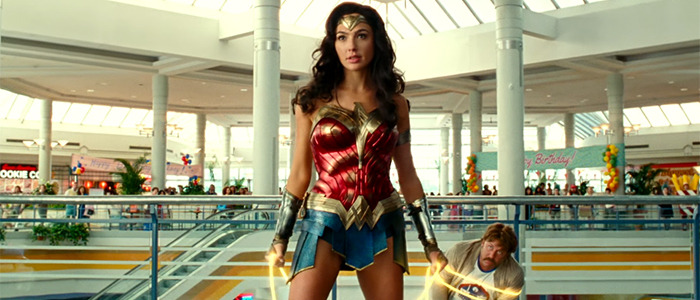Scarlett Johansson Sues Disney Over 'Black Widow' Streaming Release [Updated]
Update: Disney has responded to the lawsuit, saying it has "no merit whatsoever" and saying it is "sad and distressing in its callous disregard for the horrific and prolonged global effects of the COVID-19 pandemic." The statement continued: "Disney has fully complied with Ms. Johansson's contract and furthermore, the release of Black Widow on Disney+ with Premier Access has significantly enhanced her ability to earn additional compensation on top of the $20M she has received to date." Our original report continues below.
There's a new lawsuit against the House of Mouse, and it comes from one of the Avengers.
Scarlett Johansson, star of Marvel's Black Widow, filed a lawsuit Thursday in Los Angeles Superior Court against the Walt Disney Company. She alleges her contract was breached when the media company released her film on its Disney+ streaming service at the same time as its theatrical premiere. She says in the suit that her agreement with Disney and Marvel guarantees an exclusive theatrical release, and her salary was based on the box-office performance of the film.
Not Just a Disney Problem
The Wall Street Journal reports that the decision to put the movie on Disney+ is projected to cost Johansson more than $50 million.
"Disney intentionally induced Marvel's breach of the agreement, without justification, in order to prevent Ms. Johansson from realizing the full benefit of her bargain with Marvel," the suit said.
This isn't the first time Hollywood talent felt like they were getting a raw deal. Representatives for talent working with Warner Bros. were furious with the HBO Max same day release schedule. Shortly before the same-day schedule was announced, Wonder Woman 1984 star Gal Gadot received millions up-front for her role. Filmmakers ranging from Denis Villenueve to James Gunn were frustrated by the decision, which both hindered the possible box-office performances and their potential to get paid for their work.
This suit could be major for the entertainment industry. Many media companies have begun prioritizing their streaming services, and are increasingly putting their most high-value content on those platforms. While this has been a trend for some time, the coronavirus pandemic rapidly pushed the studios toward embracing streaming. The simultaneous theatrical/streaming releases began in 2021 at the height of the pandemic, when many theaters were closed or at limited capacity. Theaters have begun re-opening, but many consumers are still hesitant to return to a crowded room with strangers for two hours.
For their part, WarnerMedia chose to renegotiate many of its talent contracts that were tied to box-office performance. Warner Bros. paid more than $200 million to talent as part of the amended agreements. Other media companies should look to follow in their footsteps, or face the potential for lawsuits like Johannson's.
Concerns about Contracts
"This will surely not be the last case where Hollywood talent stands up to Disney and makes it clear that, whatever the company may pretend, it has a legal obligation to honor its contracts," said John Berlinski, an attorney at Kasowitz Benson Torres LLP who represents Johansson.
According to the complaint, Johannson's representatives sought to renegotiate her contract after learning of the dual-release strategy for Black Widow. Even before the pandemic, she was concerned that Black Widow could end up on Disney+ as part of its wide release. Johannson's representatives allegedly reached out to Marvel seeking assurance that the movie would have a theatrical-only release. Disney and Marvel were unresponsive, the suit said.
In an email included in the suit, Marvel Chief Counsel Dave Galluzzi said the release would be according to a traditional theatrical model, adding, "We understand that should the plan change, we would need to discuss this with you and come to an understanding as the deal is based on a series of (very large) box office bonuses."
While it's unusual for stars to speak out against the companies that sign their paychecks, Johansson has said this is her final Marvel movie. With her contract up and nothing to lose except future cameo roles, it's no surprise she's willing to fight for the alleged $50 million she might be owed.
During its July 9 opening weekend, Black Widow grossed $80 million at the domestic box office and $78 million overseas. It also generated another $60 million from $30 at-home purchases on Disney+. The movie's theatrical performance fell more sharply than most Marvel films, and some analysts questioned whether the ease of at-home viewing was hurting the theatrical box-office.
Streaming isn't going anywhere, and it's likely the same-day releases will continue. Studios will need to find a new way to compensate everyone who makes a movie, and it's possible box-office bonuses will become a thing of the past.


